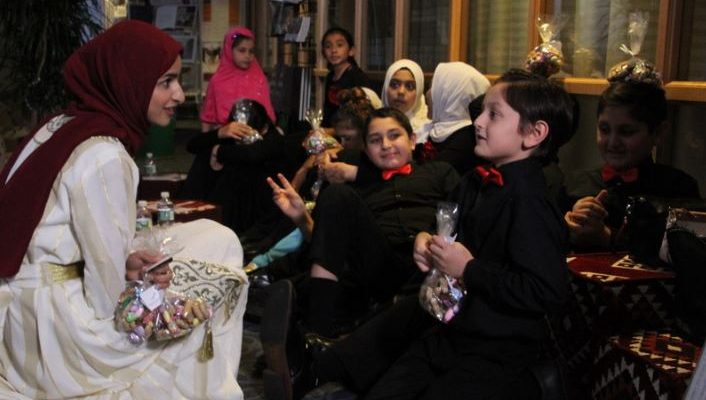WASHINGTON, June 14, 2018 – The Qatar-America Institute wishes everyone “Eid Mubarak” as the holy month of Ramadan comes to an end and the celebrations of the festival Eid-ul-Fitr begin.
The Qatar-America Institute (QAI), an independent non-profit organization focused on strengthening the cultural and educational ties between the United States and Qatar, conducted a series of iftars with the support of Gulf Bridge International, a leading network communications firm.
A staple tradition of Ramadan, iftar is the meal at sundown to break the fast shared amongst family and friends. QAI debuted its iftar series with a presentation on the rich history of Islam in the United States as led by Amir Muhammad, President of the American Islamic Heritage Museum. Mr. Muhammad shared stories of Islam’s strong roots in the U.S., from historical Muslim American figures to Thomas Jefferson’s copy of the Qu’ran.
The second iftar hosted Rabbi James Hyman of the Interfaith Conference of Metropolitan Washington, Imam Talib Shareef of the historic Nation’s Mosque, and Reverend Steven Martin of the National Council of Churches of Christ in the USA. All three engaged in an interfaith dialogue on the importance of fasting and sharing meals together.
QAI’s third iftar on heritage and family tradition celebrated “Garangao,” the Qatari Ramadan tradition where children dress in traditional clothing and go door-to-door for treats. Guests watched a performance by the only Muslim youth choir in the United States from the ADAMS Center in Virginia.
QAI concluded the series with its final iftar highlighting cultural traditions of Ramadan and Eid with henna, Arabic calligraphy, oud music, and a feast featuring traditional Middle Eastern cuisine. The remarks were provided by Imam Yahya Hendi, the Muslim Chaplain at Georgetown University, who noted that the word iftar means “open” and challenged everyone in the spirit of Ramadan to “open up their hearts and souls to one another.”
As part of QAI’s goal of bridging cultural ties between the American and Qatari people, these iftars offered a unique opportunity for hundreds of members of the local community to engage and celebrate together. While each iftar was different, they shared a purpose: to create lasting connection by sharing in the cultural richness of others.

